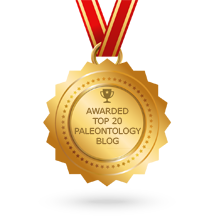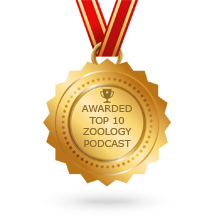Progressive Palaeontology 2017
Hello and welcome to Progressive Palaeontology 2017 in Leicester! We are delighted to host this annual gathering of up and coming palaeontological minds from around the world, bringing together exciting new research that spans the wide breadth of our field. We hope that you will find this to be an engaging and stimulating scientific conference.
Leicester, and the surrounding Leicestershire, has a rich palaeontological pedigree. Charnia masoni, discovered in Charnwood Forest in 1958, was the first Precambrian macro-organism to be described. You’ll be able to see the Charnia holotype and other spectacular fossils from around Leicestershire in the fantastic Dinosaur Gallery at the New Walk Museum during the Icebreaker reception.
The conference is held within the Department of Geology, which boasts a wide spectrum of geological interests. Research from the Palaeobiology, Palaeoenvironments and Palaeoclimates group alone spans the entire Phanerozoic, with research ranging from pioneering techniques using tooth microwear to constrain diets of a plethora of extinct organisms, disgusting work studying the effect of taphonomy on the fossil record, novel techniques using small shelly fossils to constrain Cambrian environmental conditions and cutting edge research investigating the human impact on the geological record, defining a new period of Earth’s history: the Anthropocene.
Your ProgPal 2017 committee have endeavoured to convene a lively and thought-provoking meeting and we hope you enjoy your time here. This conference would not have been possible without our numerous benefactors. We would like to thank all those who have supported us, either financially or by giving up their time, to help make ProgPal 2017 possible; particularly the Palaeontological Association and the University staff and students who have assisted us. Finally, we’d like to thank all of you, the delegates, for attending. ProgPal is a marvellous, fun and friendly forum for post-graduates to meet and demonstrate their research. We hope your experience in Leicester at #ProgPal17 will keep up this proud tradition.
The Progressive Palaeontology 2017 Organising Committee:
Tom, Jordan, Yasmin, Chris, Michael & Thomas
Times of each talk are given below (UTC+1). * denotes a ‘Lightning Talk’.
Session 1
08:50 Welcome by the committee
09:00 Omar Rafael Regalado Fernandez
New phylogeny of Basal Sauropodomorphs using the super-matrix approach
09:15 Klara Nordén
Were herbivorous dinosaurs in decline before the K-Pg extinction?
09:30 Thomas Clements
Is a ‘one size fits all’ taphonomic model appropriate for the Mazon Creek?
09:45 Susana Gutarra Diaz
Using computational fluid dynamics to study the hydrodynamic performance of fossil marine reptiles
10:00 Virginia L. Harvey
Investigating Species Identity and Chronological Frameworks Using Mass Spectrometry on Ancient Collagen
10:15 Richard Howard
*A total evidence approach to understand scorpion evolution
10:20 Christotopher Stocker
*The Silurian and Devonian proetid trilobites of Japan: a biogeographically or ecologically isolated fauna?
10:25 Bence Szabó
*Variability and predictibility of tooth microwear patterns along the dentil of ungulates
10:30 Richard Dearden
*The earliest known three-dimensionally preserved chondrichthyan branchial skeleton in the Early Devonian acanthodian Ptomacanthus anglicus
Session 2
11:05 Catherine G. Klein
A long fuse: molecular evidence for a delayed emergence of modern squamates
11:20 Emma Dunne
Terrestrial Tetrapod Diversity and Biogeography Across the Carboniferous/ Permian Boundary
11:35 Christina Shears-Ozeki
Terrestrial bioeroders from the Early to Late Cretaceous in Morocco and the Isle of Wight
11:50 Alfio Alessandro Chiarenza
Virtual taphonomy and ecological niche modelling to estimate dinosaur diversity in the latest Cretaceous of North America
12:05 Elspeth Wallace
Palaeoecology and Taphonomy of Microvertebrates from the Hell Creek Formation, northwest South Dakota, USA
12:20 Dave Marshall
*The palaeoecology of the eurypterid genus Acutiramus
12:25 Emma Landon
*The first discovery of crinoids and cephalopod hooklets in the British Rhaetian
12:30 Rebecca Bennion
*Tooth morphology and niche partitioning of the Lower Jurassic ichthyosaur fauna of Dorset and Somerset
12:35 Tiffany Slater
*Examining intrarelationships of bullhead sharks (Chondrichthyes: Heterodontiformes) using cladistics and molecular analyses
Session 3
13:25 Valentina Rossi
Morphology and trace element chemistry of melanosomes as tools for interpreting fossil vertebrate soft tissue
13:40 Aodhan O Gogain
Ontogeny in Ophiderpeton brownriggi (Lepospondyli: Aïstopoda) revealed through CT-scanning and 3D modelling; implications for aïstopod evolution and ecology
13:55 Andrew Jones
Continuous cladistics: a three-pronged attack on phytosaur phylogeny
14:10 Ryan Marek
Grabbing evolution by the throat: functional regionalisation of the avian cervical column
14:25 Rowan Dejardin
A micropalaeontological and geochemical palaeoceanographic record of the deglacial and Holocene from the sub-Antarctic island of South Georgia
14:40 Eva Herbst
*Functional Morphology of Crassigyrinus scoticus: Gaining Insight into Locomotor Evolution in Early Tetrapods
14:45 Adam Woodhouse
*Death in the oceans: extinction risk in the marine realm
14:50 Hebert Bruno Nascimentoto Campos
*Drilling pterosaur bone: An invertebrate burrow from the early Late Cretaceous Santana Formation, NE Brazil
14:55 Pedro Godoy
*Heterochrony in hypercarnivorous baurusuchids (Crocodyliformes, Notosuchia) revealed by cranial shape variation
Session 4
15:45 Christotopher Dean
No missing molluscs?: Investigating spatial aragonite bias in epicontinental seas
16:00 Daniel Cashmore
Completeness of the global non-avian theropod fossil record
16:15 Alexander Askew
Irregular depositional dynamics in Northern Spain during the Middle Devonian: evidence from a detailed palynological analysis
16:30 Robert Brocklehurst
Osteological correlates of lung structure and breathing mechanics in archosaurs
16:45 Stephen Pates
A quantitative analysis of the frequency and location of repaired injuries on Cambrian (Stage 4 and Drumian) trilobites from three sites in the Iberian Chains, Spain
17:00 Steven Zhang
*Reappraising the Evolution of the Elephantidae
17:05 Kilian Eichenseer
*Fickle oceans – the influence of temperature and Mg/Ca ratio on marine calcifiers
17:10 Christotopher Nedza
*Reconstructing the distribution of pigmented tissues in river lamprey (Lampetra fluviatilis) using three-dimensional serial histological sections
17:20 Dave Marshall
The Virtual Natural History Museum


















